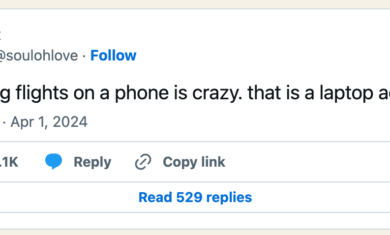Over the past decade or so, and more noticeably in the past few years, younger users are ignoring the concepts of “files” and “folders” when it comes to saving their work on a computer.
A recent article in The Verge dug into this, and an early example in the article sums it up well. When helping students track down their files, it led to an interesting exchange:
She asked each student where they’d saved their project. Could they be on the desktop? Perhaps in the shared drive? But over and over, she was met with confusion. “What are you talking about?” multiple students inquired. Not only did they not know where their files were saved — they didn’t understand the question.
In a world of search, why worry about where a file lives?
Gmail Folders
I first noticed this in my own work back in 2009, when I advised readers to give up using folders/tags in Gmail. Why worry about it? You’ll spend dozens of hours a year carefully sorting your emails into folders and subfolders, and the time you save as a result will just be a fraction of that.
Roam and mymind
I’m noticing this in new tools as well. You know I love Roam Research, and it literally doesn’t have a way to save things in a traditional hierarchy. You link from one item to another, and use search to find the rest.
The popular bookmaking app mymind works similarly. There are no folders or organization to deal with. They even promote that their system is “For those who move too fast to be bothered with folders, labels and systems.“
Google Photos
Yet another example is Google Photos. While you can organize your pictures into albums (and you can make a case that it’s worth the time to do that), I’d wager that 99%+ of photos in Google Photos are just loose. Even with no tags or folders, thanks to Google’s AI I can quickly search for “beach” or “campfire” or “Kelly Mellen” or “Nashville” and Google can come up virtually every photo I’ve taken that matches that criteria.
Teams are different
When it comes to files for teams, though, I think things are a bit different — at least for now. When it comes to organizing information for our team, whether it’s in a familiar setup like Google Drive or something newer like Notion, we try to keep a well-constructed file hierarchy. It’s one thing to keep my data un-foldered, but for a team it’s still good to have everyone follow the same idea. Tools like Roam Research are still very single-player focused, though I suspect that will change in the coming years.
I encourage you to read the full article over at The Verge, but they end it with my exact sentiments in this quote from professor Peter Plavchan:
Get ready. “This is not gonna go away,” he says. “You’re not gonna go back to the way things were. You have to accept it. The sooner that you accept that things change, the better.”




